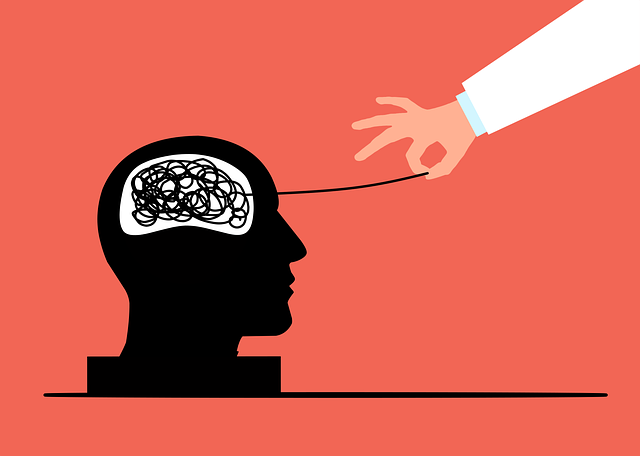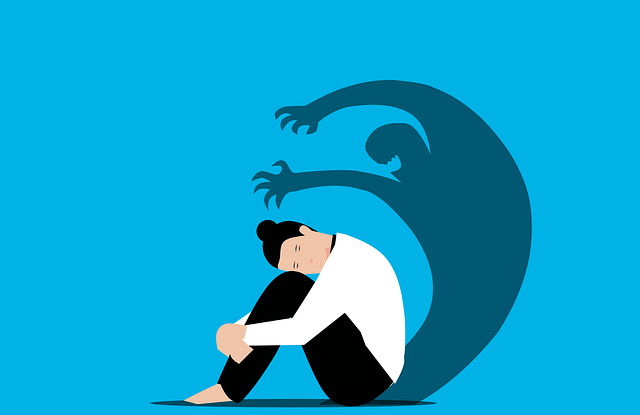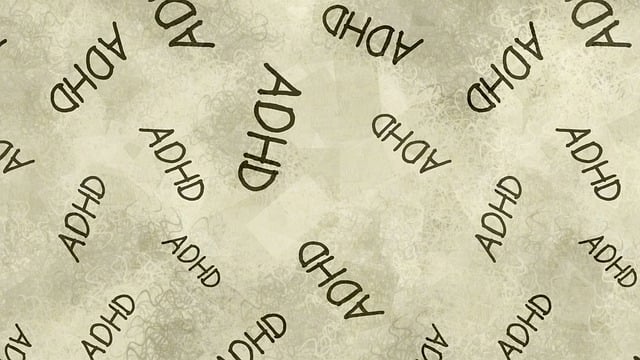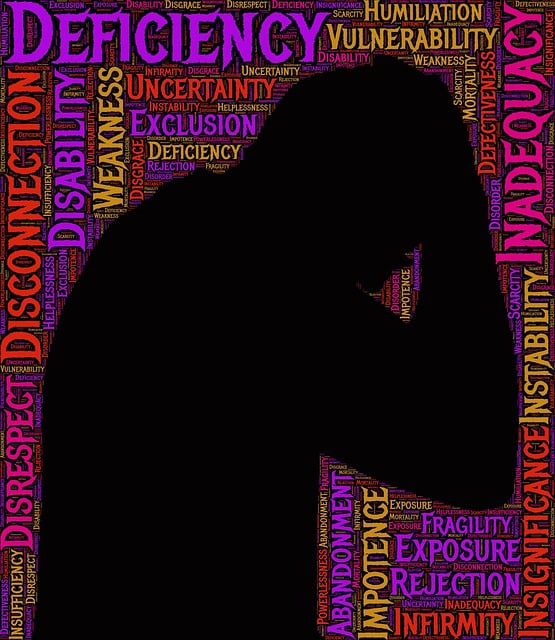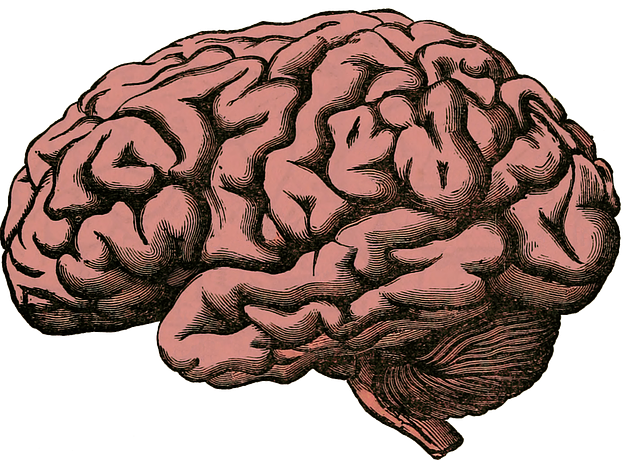Understanding mental health diagnoses is crucial for elders and their loved ones navigating elder care, as conditions like depression, anxiety disorders, and cognitive impairments present unique challenges. Specialized therapies like Eye Movement Desensitization and Reprocessing (EMDR) and mindfulness meditation have proven effective in treating trauma and stress among elders. EMDR therapy, a "game-changer" for elderly patients with complex trauma and anxiety, facilitates the processing of distressing memories through bilateral stimulation. Personalized interventions focusing on emotional well-being promotion techniques and resilience building are beneficial for elders, addressing mental health concerns and enhancing coping mechanisms while considering age-related factors. By combining evidence-based practices like EMDR with compassion cultivation and robust stress management strategies, a holistic care environment is created, fostering elders' well-being, resilience, and improved quality of life.
“Mental illness diagnosis and treatment navigation can be complex, especially for elders. This comprehensive guide delves into the world of mental health conditions frequently encountered in older adults, shedding light on conditions like depression, anxiety disorders, and PTSD. We explore EMDR therapy—a revolutionary approach proven effective for elderly patients. By understanding treatment options, creating personalized care plans, and offering ongoing support, we can enhance the healing journey for our aging loved ones. Discover how these strategies combine with EMDR to revolutionize mental health care for elders.”
- Understanding Mental Health Diagnoses for Elders: Unveiling Common Conditions
- The Role of EMDR Therapy: A Game-Changer for Elderly Patients
- Navigating Treatment Options: Creating a Personalized Care Plan
- Supporting Elderly Individuals Throughout the Healing Journey
Understanding Mental Health Diagnoses for Elders: Unveiling Common Conditions

Understanding mental health diagnoses is a crucial step for elders and their loved ones navigating the complex landscape of elder care. Common conditions among older adults include depression, anxiety disorders, and cognitive impairments such as dementia and Alzheimer’s disease. These conditions often present unique challenges due to age-related changes in brain function and life experiences. For instance, depression in older adults might manifest differently than in younger individuals, with symptoms like apathy, fatigue, and sleep disturbances rather than the typical sadness or hopelessness.
Recognizing these variations is essential for accurate diagnosis and effective treatment planning. Therapy for elders often involves specialized approaches tailored to their specific needs. Eye Movement Desensitization and Reprocessing (EMDR) therapy has gained recognition as a powerful tool for addressing trauma and anxiety in older adults, facilitating emotional healing processes. Additionally, mindfulness meditation practices have shown promise in managing stress, improving cognitive function, and reducing the stigma associated with mental illness among this demographic. Mental illness stigma reduction efforts are vital to encouraging elders to seek help without fear of judgment or societal ostracization.
The Role of EMDR Therapy: A Game-Changer for Elderly Patients

EMDR therapy has emerged as a game-changer for elderly patients navigating mental health challenges. This innovative approach, short for Eye Movement Desensitization and Reprocessing, is particularly effective in treating complex trauma and anxiety disorders that often accompany aging. By facilitating the processing of distressing memories and emotions, EMDR helps seniors reclaim their mental wellness.
The therapy encourages patients to focus on traumatic events while simultaneously engaging in bilateral stimulation, typically through side-to-side eye movements or tactile taps. This process allows for the reprocessing of stored memories, reducing their emotional intensity. Coupled with journaling exercises designed to capture and reflect upon thoughts and feelings, EMDR offers a holistic guidance towards positive thinking and inner strength development. By addressing underlying issues and promoting resilience, this therapy empowers elderly individuals to manage their mental health effectively, enhancing their overall quality of life.
Navigating Treatment Options: Creating a Personalized Care Plan

Navigating treatment options for mental health is a crucial step towards recovery. Every individual’s journey is unique, and creating a personalized care plan ensures that the approach aligns with their specific needs. This process involves exploring various therapeutic modalities, such as cognitive-behavioral therapy (CBT) and eye movement desensitization and reprocessing (EMDR), which have proven effective for many. By assessing symptoms, personal preferences, and goals, mental health professionals can guide patients towards the most suitable therapy or combination of techniques.
For elders, tailored interventions focusing on emotional well-being promotion techniques, like mindfulness practices and resilience building, can be particularly beneficial. These strategies not only address existing mental health concerns but also foster positive thinking and enhance overall coping mechanisms. A comprehensive care plan should consider age-related factors, ensuring accessibility and adaptability in treatment methods to cater to the unique challenges faced by older individuals.
Supporting Elderly Individuals Throughout the Healing Journey

Supporting elderly individuals throughout their healing journey is a multifaceted task that requires tailored approaches and specialized care. As mental health issues can often go undiagnosed or mismanaged in older adults, effective navigation assistance is vital. This support should encompass not just access to suitable therapy for elders, like EMDR (Eye Movement Desensitization and Reprocessing), but also a comprehensive suite of stress reduction methods.
By integrating evidence-based practices such as EMDR alongside traditional therapy, compassion cultivation practices, and robust stress management strategies, we can create a nurturing environment that addresses the unique needs of the elderly. This holistic approach not only aids in managing symptoms but also fosters resilience, enhancing their overall well-being and quality of life during this transformative phase.
Mental illness diagnosis and treatment for elders can be complex, but with the right navigation assistance, healing is achievable. By understanding common mental health conditions in older adults and leveraging innovative therapies like EMDR (Eye Movement Desensitization and Reprocessing), professionals can significantly improve outcomes. Creating personalized care plans that consider each individual’s unique needs fosters a supportive healing journey. With the right guidance, therapy for elders can be transformative, offering new perspectives and improved quality of life.






